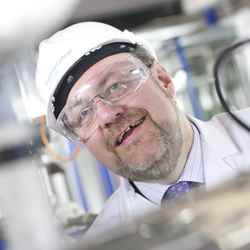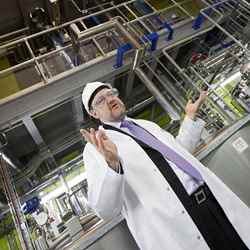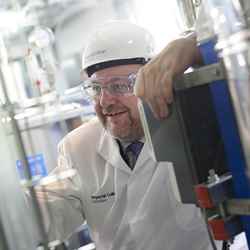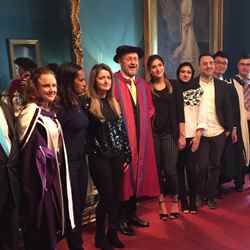Professor Daryl Williams
Winner: 2020 Chemistry World Entrepreneur of the Year
Imperial College London and Surface Measurement Systems Limited
For the pioneering invention of the dynamic vapour sorption instrument, which has transformed research laboratory practise worldwide.
Celebrate Professor Daryl Williams
#RSCAwards
In the world we live in, we are surrounded by water, including water in the air we breathe. ‘Water vapour in air’ is what is known as humidity. Because water is a very reactive molecule, this humidity affects many of the solid materials we live with. Water, as well as being essential to sustain life, can have a surprising effect on solid materials including foods, plastics and pharmaceuticals. Ever notice what happens when you leave a bag of crisps open for a couple of days, or leave the top off your instant coffee jar? Those materials lose some of their appeal – the crisps become less crispy, and the coffee granules can become wet and sticky. They change their physical properties and no longer perform as well as they are designed to do. Many materials are negatively impacted on by humidity.
This impact can become much more serious in the case of the tablets and pills you get from the pharmacy. Moisture can affect the shelf life and performance of medications. To eliminate these risks, researchers need to know what humidity will do to tablets and pills. All new tablets and pills that are developed must be tested for their moisture sensitivity. Twenty years ago, Professor Daryl Williams at London-based Surface Measurement Systems invented a new scientific instrument to do this specific measurement of moisture sensitivity of drug powders, tablets and pills. This new instrument was called a Dynamic Vapour Sorption instrument (DVS) and is now used by every pharmaceutical company in the world. The DVS tests every new drug powder, tablet and pill that is developed. This instrument is 20 times quicker and 20 times more accurate than its predecessors, making it an important tool to accelerate the development of new medicines, which in turn make the world a healthier place.
Read full biography









